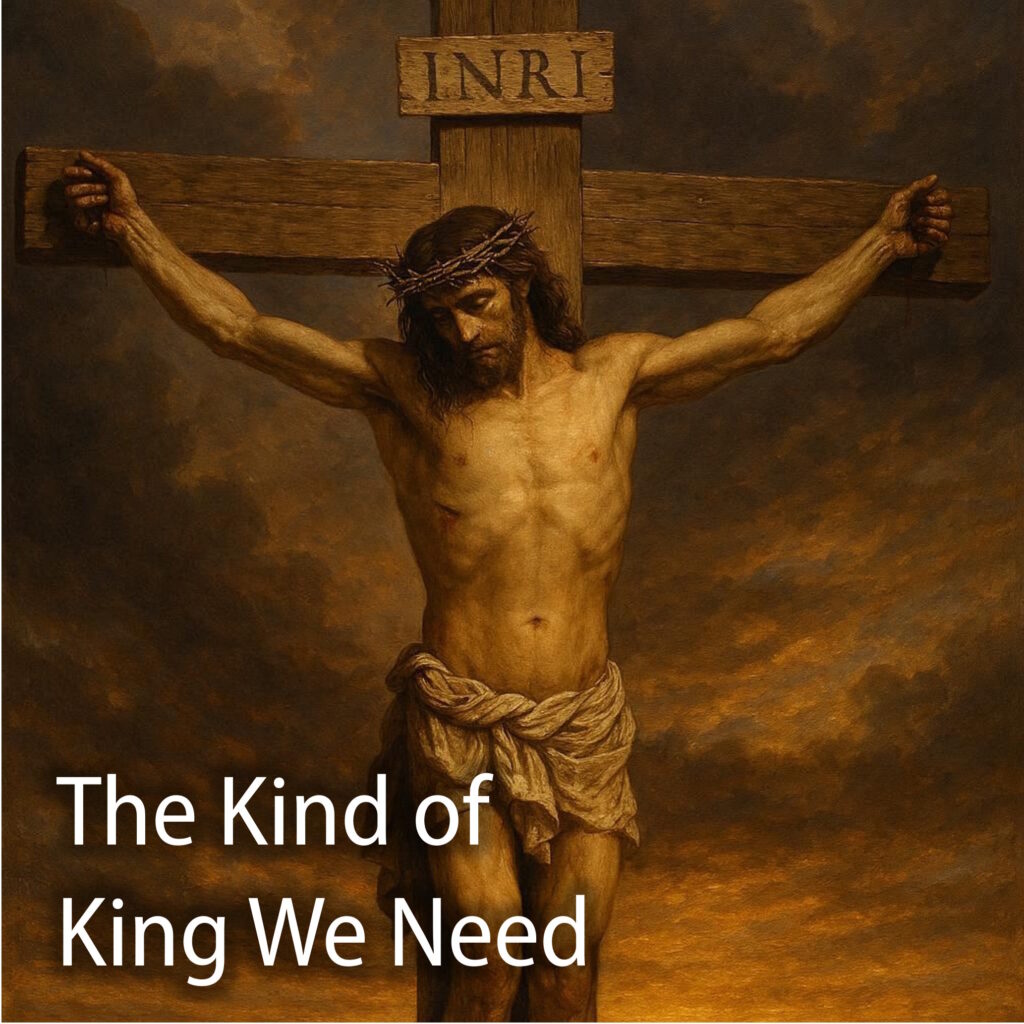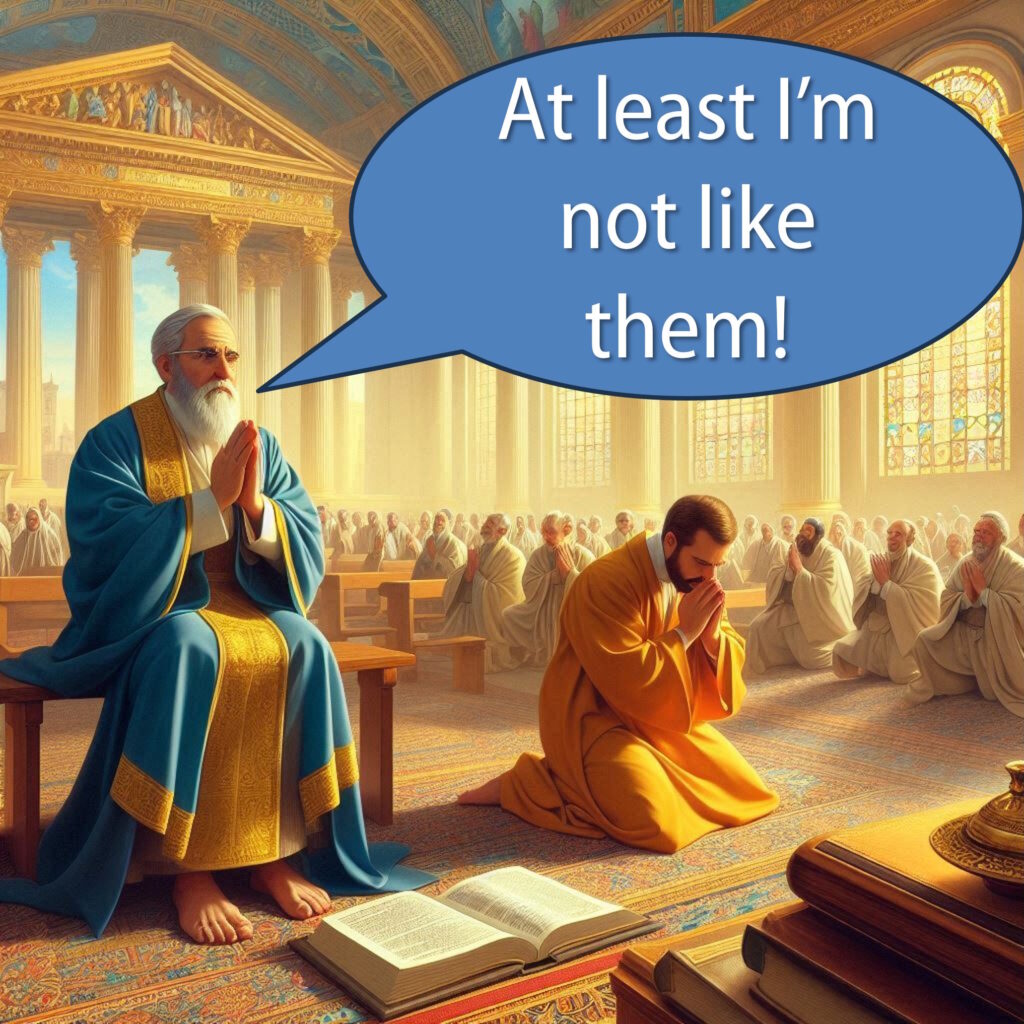Watch sermon video here:
Hespeler, November 30, 2025 © Scott McAndless – First Sunday in Advent
Isaiah 2:1-5, Psalm 122, Romans 13:11-14, Matthew 24:36-44
The verse we read from the Gospel of Matthew this morning has caused no end of trouble for the church over the years. I’m speaking, of course, about the verse where Jesus says, “But about that day and hour no one knows, neither the angels of heaven, nor the Son, but only the Father.”
I’m not talking about the trouble that that has caused for our Trinitarian Theology. If we confess that the God we worship is one God revealed in three persons – Father, Son and Holy Spirit – we can’t help but wonder how one of those “persons,” the Father, can know something the another, “the Son” doesn’t.
That problem has generated endless discussion among Christians over the centuries, but I don’t think that is the biggest problem we have with this verse.
The Return of Christ
It is a reference, of course, to the second coming of Christ, which is the promise that human history is moving towards some great conclusion where God will finally intervene.
Humanity has, collectively speaking, made a bit of a mess of this world. That seems clear enough.
You may speak about spiraling violence made more destructive by ever more powerful weapons. You can talk about environmental devastation and the destruction of animal habitat. Or you can take note of the economic forces that push millions into an existence of unrelenting poverty, while the wealthy few hoard the abundance of this world.
These and other problems have made people of faith long for God to intervene and finally set things right since ancient times.
Positive and Negative
This can definitely be seen as a very positive thing. Just a couple of weeks ago, we read a beautiful image from the Prophet Isaiah of God creating a new world that is a joy and delight for all – a world where people actually get to enjoy the work of their own hands.
But there is no question that there is also a dark side to it. We see that in this very passage we read this morning. It is also an extraordinarily destructive event where those who are opposed to God’s rule are wiped out, like in the story of Noah’s ark. The destruction is also described as indiscriminate. With two in the field, one taken, and the other spared, two women grinding grain, one taken, and the other left.
Ambivalence Towards the Future
So there is a promise and a threat as we look towards the future. And that is, I think, a perfect reflection on how we actually feel living in the world these days.
As we look forward, we certainly hope that God is at work creating a better world. But, at the same time, how can we help but be worried that the road from here to there will be terrible and filled with horror, destruction and violence? The future, as has always been the case, is a place that provokes in us very contradictory feelings.
An Announcement

And given all that we cannot help but feel as we contemplate the future, what would you think if I came in here this morning, stood before the church and made an announcement?
“Hey everybody, I know that you are all worried about the state of the world, but I have good news for you. Jesus is coming back. I have studied all of these obscure Bible passages and made these intricate calculations, and I know exactly when he will arrive. He will be here on Sunday December 14, at 11:00 a.m. local time.
“Now, it is true that, between now and then, things are going to be very dark. There will be wars and rumours of wars and terrible signs all over the earth. But don’t worry. So long as you all do exactly what I say between now and then, you will be okay, and you will be received in God’s kingdom.
“Unfortunately, I can’t say as much for the people of that other church down the road!”
Am I Crazy?
What would you think if I came in and said something like that? I know you would probably not accept what I said. You would conclude that I am either mistaken, lying or going crazy. And I am kind of glad that that would be your response. That demonstrates that you are smart, that you are capable of critical thinking.
But can we say that everyone would respond to all preachers who said something like that in the same way as you smart folks? No, we cannot. We know for a fact they won’t. Certain preachers, with the right amount of charisma and speaking to the right audience and using the best media can definitely get people to believe them.
Joshua Mhlakela
It has happened repeatedly throughout history. You may recall that it happened again just a couple of months ago. South African pastor Joshua Mhlakela prophesied that Jesus would take true believers to heaven before a global tribulation on September 23rd and 24th of this year. Many of people believed him.
His message went viral on TikTok, with videos amassing millions of views. It was amazing how many people believed him and acted according to what he said. Some even continued to believe him when that date came and went without Jesus’ arrival.
That’s right. I’m sorry to be the one to tell you if you didn’t hear, but the world didn’t end on September 24. And then Mhlekela revised his date, admitting only that he had made a mistake by using the Gregorian Calendar instead of the Julian Calendar. And some even continued to believe and follow him then.
Jesus then also failed to show up on the new date, October 6-7. I’m not sure what Mhlekela said next because people stopped listening.
Not Getting Personally Sucked in
Now, I know that we might be tempted to laugh at people who fall for this kind of message. It makes us feel superior to think that we would never get sucked into this kind of prophecy.
It is good to inoculate ourselves personally against being taken in by this kind of thing, of course. We can do that by reminding ourselves that people have been predicting the end of the world and the coming of Christ for a couple of millennia now.
There must have been literally millions of date predictions that have come and gone at this point, and every single one of them has failed. At this point, it certainly does take someone with a very big ego to think, “Hey, they were all wrong, but I am the one who finally got it right.”
Damaged Caused
However the danger of these predictions extends beyond the individuals who fall for the message. They can do a lot of more generalized damage. In particular, they can give a lot of power to those who make them.
There is no question that fortunes have been made and empires and religions have been built around such predictions. Churches such as the Seventh-Day Adventists and the Jehovah’s Witnesses got their start and built huge followings based on predictions that they were able to exploit.
In both of those cases, when the dates of their predicted ends came and went without anything happening, they adapted and changed so that the modern expressions of those faiths are quite different. But the initial leaders of the movements leveraged those predictions to become extremely powerful. In their pursuit of wealth and power, they caused significant damage to many who believed them.
Fear of the Future
The future is frightening. It is full of something that we naturally fear: the unknown. And fear is a powerful emotion, as anyone knows who has ever dealt with a phobia.
If you have a deep-seated fear like a fear of heights, or flying, or spiders, your logical and rational mind can be absolutely no help to you. Your rational mind may know very well that that railing is secure, that cars are much more dangerous than airplanes and that the vast majority of spiders are actually beneficial. None of that does not help you one tiny little bit when you find yourself face to face with something that terrifies you.
Well, to a certain extent, I think we are all naturally futurephobic. So, when somebody with a little bit of charisma comes along and promises to make the unknowable known, our response may not be entirely rational. Our emotions may take control of the situation.
So, it is not all that surprising that people do respond irrationally when someone comes along offering a clear path through future events.
Exploitation of the Fear
And people have been exploiting that human tendency since forever by offering clear predictions of what is to come and when. It doesn’t even matter whether their vision of what is coming is positive or negative. Anything that can give a sense of certitude will always seem less scary.
And Jesus understood that about us. He understood how vulnerable the fear of the future can make us. And Jesus abhors the very idea that anyone should use fear to attempt to control us. Jesus came to show us perfect love and, as the apostle wrote, “There is no fear in love, but perfect love casts out fear.” 1 John 4:18
That is what Jesus is talking about when he says, “But about that day and hour no one knows, neither the angels of heaven, nor the Son, but only the Father.” It is not that Jesus cannot know about future events. It is certainly not that he isn’t in the Father and the Father isn’t in him. (John 14:11) It is more like he chooses not to know.
Jesus Does Not Exploit Our Fear
It is his way of saying that he will not use the fear of the unknown to manipulate or exploit his people. And if Jesus won’t do it, neither should any of us.
But this is not just a rebuke to those who would set dates and use them to feed their own power. I believe it is a general rebuke to any church or any organization that tries to use fear to keep its people in line.
And that is a rebuke that falls very broadly. Fear is a tool that Christianity has employed again and again throughout its history. We have used the fear of hell and damnation, the fear of expulsion from the community, and even at times the fear of physical punishment to keep our people in line. We have used it to make people fear having the wrong thoughts as well as engaging in incorrect behaviour.
But just as Jesus refused to wrest control of what happens next from God, the church must refuse to take control over people’s salvation, thoughts and actions unto itself.
Letting Go of Control
Let us learn to say, “We don’t control who will be saved, that is only in the gracious hands of God.” Let us learn to say, “Our doctrines do not define for all time who God is; God defies all human definitions!” Let us add these and other understandings to the teaching that “the knowledge of the future is in God’s gracious hands alone.”
What I mean when I say that this verse in the Gospel has caused no end of trouble for the church over the years is that it will be tough to let go of what has been the church’s most effective tool. Fear works. It can motivate people like few other things can.
However, the history of people making predictions about the date of Christ’s return reveals that such motivation will inevitably lead us to a dark place sooner or later.
Facing the Future with Confidence
I know that many of you, as you look around at the state of the world today, find that there are many reasons to fear what may be coming at us. I understand that fear; I often feel it too. All I’m going to say is that I am not going to try and make you feel better by telling you how it is all going to go and when the end will come.
Such an answer might make you feel better in the short term, but I don’t believe that either of us will find that helpful in the long term.
Instead, I will seek to encourage you by telling you that the future is unknown, but that it is in the hands of God. And the God who holds that future is the “Father” revealed to us in Christ, who is compassionate, forgiving and full of grace.
Believing that, I promise you, will free us all up to build new possibilities for the future that defy all of the troubling signs that are in the world today.




